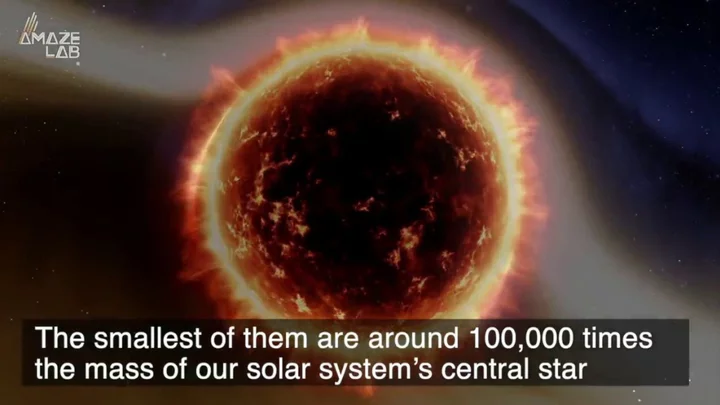
Scientists confirm that the most iconic black hole in the universe is spinning, in major new discovery
Scientists have confirmed that the first black hole to ever be captured on camera is spinning in a major new discovery. The famous doughnut-shaped M87* black hole, 6.5 billion times more massive than the sun, first drew people’s attention in 2019 for becoming the first void to be pictured. Now, it has been confirmed that the M87* black hole is spinning, but experts have yet to determine just how fast. The announcement was made on 27 September. M87* has been observed for the last two decades via a network of radio telescopes. It is located in the Messier 87 (M87) galaxy, which is around 55 million light-years away from Earth in the Virgo constellation. The instruments monitoring the black hole have observed a powerful jet of radiation and particles being expelled from its poles. According to research, the relativistic jets appeared to be on a kind of pendulum that swings every 11 years, observed over decades. Experts believe this is caused by interactions between gravitational interactions between the black hole and the material making up the disk around it. They say this provides “unequivocal evidence” that the black hole is spinning. Cui Yuzhu, a researcher at Zhejiang Lab in China and the study’s lead author explained in a statement: “We are thrilled by this significant finding,” adding, “Since the misalignment between the black hole and the disk is relatively small and the precession period is around 11 years, accumulating high-resolution data tracing M87’s structure over two decades and thorough analysis are essential to obtain this achievement.” Their findings matched with computer simulations, confirming that the jets emitting from the black hole change direction by around 10 degrees every 11 years. Sign up to our free Indy100 weekly newsletter Have your say in our news democracy. Click the upvote icon at the top of the page to help raise this article through the indy100 rankings.
2023-09-28 20:25

Evergrande: Why should I care if China property giant collapses?
There are reports the leaders of the heavily indebted Chinese property giant have been detained.
2023-09-28 19:26

Time-lapse that took 20 years to make shows legendary stellar explosion
Scientists have spent 20 years putting together time-lapse footage offering a stunning window into the past. Two decades of data taken from NASA’s Chandra X-ray Observatory were used by astronomers to create a video of a stellar eruption that actually occurred 180 years ago. Observations from Chandra, taken in 1999, 2003, 2009, 2014 and 2020 were all used, in combination with data from ESA’s XMM-Newton spacecraft. With the combined data, experts were able to capture the stellar explosion, known as Eta Carinae. Eta Carinae is a famous star system containing two large stars, one of which is around 90 times larger than the Sun, while the other is around 30 times as large. The “Great Eruption” from Eta Carinae is believed to be the result of the merging of two stars that were originally part of a three-star system. Eta Carinae Time-Lapse, Chandra X-ray Observatory www.youtube.com It first took place in the mid-19th century and the aftermath is still continuing to be observed today. New footage shows how the explosion has expanded into space with staggering speeds of up to 4.5 million miles per hour. In a statement, NASA officials explained: “During this event, Eta Carinae ejected between 10 and 45 times the mass of the sun. This material became a dense pair of spherical clouds of gas, now called the Homunculus Nebula, on opposite sides of the two stars.” The Homunculus Nebula is the blue cloud visible in the video, while the growing bright orange ring shows how X-ray emissions have grown and expanded over time. “The new movie of Chandra, plus a deep, summed image generated by adding the data together, reveal important hints about Eta Carinae’s volatile history,” the statement read. “This includes the rapid expansion of the ring, and a previously-unknown faint shell of X-rays outside it.” Sign up to our free Indy100 weekly newsletter Have your say in our news democracy. Click the upvote icon at the top of the page to help raise this article through the indy100 rankings.
2023-09-28 18:53

Best Thursday Night Football Sign-Up Promos: Win $400 GUARANTEED at FanDuel and DraftKings Tonight!
FanDuel and DraftKings are giving new users a guaranteed $400 bonus betting just $10 on Thursday Night Football! Find out how to claim these offers here.
2023-09-28 18:28
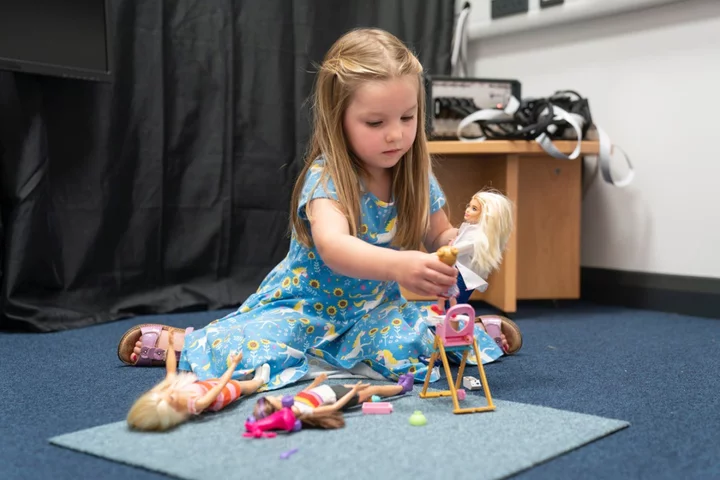
Playing with dolls could help a child’s social development
Playing with dolls could help the social development of children - including those with neurodiverse conditions such as autism, according to a study. The research, from Cardiff University, found children exhibiting higher levels of autism traits showed increased brain activity in a key region associated with social processing when engaging in conversations with individuals during doll play. The new findings suggested that broader social engagement with others while engaging in doll play was a unique pathway to social development for these children. This was in contrast to what was observed in neurotypical children, who were more likely to discuss the dolls’ thoughts and emotions. However, researchers said that despite this difference, it showed that both groups may be able to benefit from doll play by using it as a tool for practising social scenarios and developing social skills, such as empathy. The findings are the latest release from a multi-year study by the Centre for Human Developmental Science at the university’s School of Psychology. Previous years have focused on neurotypical children and found wide-ranging social and developmental benefits of playing with dolls. Now, in its third year, the research team has replicated those results with a more diverse range of participants, including children aged between four and eight displaying both high and low levels of traits associated with autism. Lead researcher Dr Sarah Gerson said: “Our study shows that doll play can encourage social processing in children, regardless of their neurodevelopmental profile. “The findings show that all children, even those who display neurodivergent traits commonly associated with autism, may use doll play as a tool for practicing social scenarios and developing social skills, such as empathy.” State-of-the-art functional, near-infrared spectroscopy equipment was used to explore brain activation while children played with dolls and on tablets, both by themselves and with another person, replicating conditions from the first year of the study. While observing children, researchers saw increased brain activity in the posterior superior temporal sulcus (pSTS) region - which is heavily involved in social and emotional processing such as empathy - when playing with dolls, for both play with a social partner and during solo doll play, but less so during solo tablet play. The study’s results suggest that doll play could support social processing, regardless of a child’s neurodevelopmental profile, but through different pathways. For children displaying fewer autistic traits in the research, talking about the mental states and emotions of the dolls they were playing with was associated with increased pSTS activity. In contrast, for those displaying more autistic traits, talking with others during doll play, even when playing by themselves, led to more social processing on a neural level. Other research has shown that social processing and empathy skills are important determinants in children’s future emotional, academic, and social success. The study was a collaboration with the Wales Autism Research Centre. ‘Create a more inclusive and supportive environment for their development’ Its director Dr Catherine Jones said: “The study reinforces how it is important that that we acknowledge and value neurodiversity. “This means recognising and valuing the diverse ways in which children’s brains work and approaching social development in a way that is inclusive and accommodating for all children, regardless of their neurodivergence. “By embracing all ways that children choose to play, we can create a more inclusive and supportive environment for their development.” Since the landmark publication of Piaget’s theory of cognitive development, the effects of play have been thought to be positive for kids’ social skills and creativity, but this has never been scientifically evidenced at the brain level. The multi-year long-term study, commissioned by Barbie, is the first time key Piaget theories on play have been scientifically evidenced via brain imaging and the first to use neuroimaging evidence with natural doll play, meaning there was no prescribed storyline to show how the brain is activated during doll play. Michael Swaisland, head EMEA of insight and analytics, Mattel, said: “We are proud to know that when children, regardless of their neurodevelopmental profile, play with Barbie, their playtime may benefit their development. “As Barbie continues to inspire the limitless potential in every child, we are delighted to know, through neuroscience, that playing with dolls may encourage the development of social skills such as empathy in children, including those who display neurodivergent traits commonly associated with autism. “We look forward to uncovering even more benefits of doll play through our long-term partnership with Cardiff University as we look to shine a light on the benefits the play pattern has towards development, that parents might not have been aware of.” Parents and caregivers can visit here to learn more about the research and access resources. Read More Toys children play with can have an effect on their success in adulthood The best exclusive discount codes this payday Many parents of under 5s on less than £50k ‘quit work due to childcare costs’ – survey
2023-09-28 17:49

Some children avoid sleepovers due to fears of wetting the bed
Eight in 10 children who experience bedwetting have never attended a sleepover - because they’re too embarrassed. A survey of 742 adults, with children aged 4-11, found that 69 per cent of kids have turned down an invite to a sleepover party. And nearly as many (67 per cent) of parents have declined an invitation on behalf of their child. To help parents and kids deal with the experience, and help kids make friends and gain independence through sleepovers, Pampers Ninjamas teamed up with Dr Ranj Singh on educational and fun content discussing bedwetting, and how to prepare for nights out of the home. The three-part series provides education about why bladder leaks can happen, as well as practical tips on how to manage them, particularly during sleepover moments. Paediatrician, TV presenter and author Dr Ranj, said: “Sleepovers can play an important role in developing the confidence and independence of children, as well as for their enjoyment. “So I am proud to be helping the 82 per cent of children who are currently missing out, to offer practical advice as to how to better prepare for overnight stays with friends and family.” The research also found more than a quarter (26 per cent) of respondents are not comfortable discussing bedwetting with parents hosting sleepovers. And 35 per cent report an increase in bedwetting before going back to school, suggesting scholastic stress could be a trigger. To combat the situation, 76 per cent have invested in a waterproof mattress, while 68 per cent have purchased nappies for older children. Read More Playing with dolls could help a child’s social development Study finds free childcare reform has ‘little benefit’ to poorer families Most children in kinship care living with at least one grandparent, figures show
2023-09-28 17:45
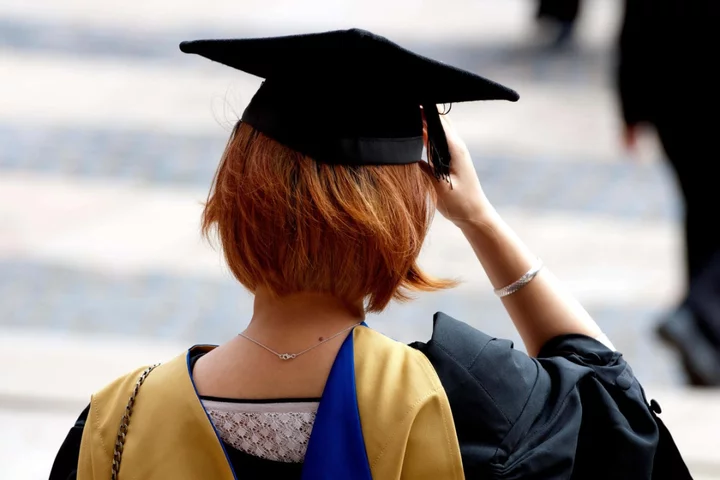
Female students ‘more than twice as likely’ to be affected by poor mental health, research shows
Female university students are more than twice as likely as male students to say they have been affected by poor mental health, new analysis suggests. Data shows 12% of female students say they have been affected, compared to 5% of males. Reported mental health problems among university students have almost tripled in recent years, according to the analysis. The percentage of undergraduate students at universities across the UK who said they had experienced mental health difficulties rose from 6% to 16% between the 2016/17 and 2022/23 academic years. It means one in six undergraduates now reports experiencing mental health challenges. The findings suggest further action should be taken to prevent mental health difficulties arising wherever possible, and that services are adequately resourced to support students quickly when they need help Professor Michael Sanders, King’s College London Analysis by the Policy Institute at King’s College London and the Centre for Transforming Access and Student Outcomes in Higher Education (TASO) found a significant part of this increase occurred in the last 12 months, a period during which the cost-of-living crisis intensified. Poor mental health is by far the most common reason for students wanting to drop out of university. Among those considering dropping out, the proportion citing financial distress as the main reason has risen from 3.5% to 8% between 2022 and 2023. But the general upward trend in mental health problems predates both the rise in inflation and the Covid-19 pandemic, indicating that other factors are likely to be at play, researchers said. The analysis – which drew on a dataset of 82,682 full-time UK undergraduates over seven years – shows some groups are more affected than others. Of the non-binary respondents, 42% said they have been affected by poor mental health, along with 30% of trans people. Bisexual people (28%) have the highest average levels of mental health difficulties among LGBTQ groups across the data, while gay men (14%) have the lowest – although this is still greater than the level seen among straight people (7%). White students (12%) have on average worse mental health than their peers from other ethnicities, but those with a “mixed” ethnicity (12%) are just as likely to have mental health difficulties. Undergraduates who attended state schools (15%) have on average worse mental health than their peers who attended private school (11%), while students who get most of their money through a maintenance loan, grant or paid work are more likely to have mental health difficulties than those on scholarships or with family support. Michael Sanders, professor of public policy at the Policy Institute and author of the study, said: “It’s clear the experiences of mental ill-health among students are deeply unequal, and exist along much the same lines as in society at large, with those from the most disadvantaged backgrounds or who often face discrimination being most likely in general to report struggles with their mental health. “The findings suggest further action should be taken to prevent mental health difficulties arising wherever possible, and that services are adequately resourced to support students quickly when they need help.” Dr Omar Khan, chief executive officer of TASO, said: “This report highlights the persistent and widespread mental health challenges faced by students. “While Covid and the cost-of-living crisis have clearly exacerbated such challenges, the upward trend is not new. “We’re working with the higher education sector to better understand what works to improve mental health outcomes for all students.” It comes as a separate report from the NHS Race and Health Observatory calls for more mental health support for people from Gypsy, Roma and Traveller Communities in England. It said that it is estimated that suicide rates among these groups are up to seven times higher than in other communities. Dr Habib Naqvi, chief executive of the NHS Race and Health Observatory, said: “We know that Gypsy, Roma, and Traveller communities face stark challenges in accessing psychological therapies and other mental health services. “This report lays bare the mental health issues and stigma faced by these communities first hand.” Read More Charity boss speaks out over ‘traumatic’ encounter with royal aide Ukraine war’s heaviest fight rages in east - follow live Many parents of under 5s on less than £50k ‘quit work due to childcare costs’ – survey 5 trainer trends that will be everywhere this autumn 11 ways to work autumnal wonder at home
2023-09-28 16:59

People are just learning Google's original name – and thanking god that it was changed
A world without Google would almost be akin to a world without water or air. Indeed, the internet behemoth’s power is so great that it’s even become its own verb. And sure, there are other search engines, but when have you ever heard someone say: “Let me just Bing that”? Yet, it turns out the iconic tech company could have had a very different fate had it stuck to its original name. That’s right, Google hasn’t always been Google. And at its inception back in 1996, it had a somewhat more risqué title. It was called… BackRub. Yep, BackRub. According to Standford University computer scientist David Koller, who wrote about the brand’s genesis back in 2004, founders Larry Page and Sergey Brin came up with the search engine's first name as a nod to its analysis of the web’s “back links”. However, a year after BackRub was born, Page and his officemates – including fellow graduate students Sean Anderson, Tamara Munzner, and Lucas Pereira – discussed a number of possible alternatives to the massage-evoking moniker. According to Koller, the final, fateful brainstorming session occurred one day in September of that year. “Sean and Larry were in their office, using the whiteboard, trying to think up a good name - something that related to the indexing of an immense amount of data,” he recalled. “Sean verbally suggested the word ‘googolplex,’, and Larry responded verbally with the shortened form, ‘googol’ (both words refer to specific large numbers). “ Anderson then searched the Internet domain name registry database to see if the newly suggested name was still available to use. But, since “Sean is not an infallible speller”, “he made the mistake of searching for the name spelt as ‘google.com,’ which he found to be available,” Koller continued. “Larry liked the name, and within hours he took the step of registering the name ‘google.com’ for himself and Sergey.” And the rest, as they say, is history. Sill, 25 years on from that simple domain name registration that would go on to change the world, people have shared their bewilderment that “BackRub” could have become a household name. “I could die without knowing that this was Google's old name,” one X/Twitter user commented. “What were they smoking back in 90s??” asked another. Meanwhile, a third responded with what we’re all now thinking: “Tbh I need a backrub.” At least the tech titans can now give themselves a pat on the back for a job well done with “Google”. Sign up for our free Indy100 weekly newsletter Have your say in our news democracy. Click the upvote icon at the top of the page to help raise this article through the indy100 rankings.
2023-09-28 16:51
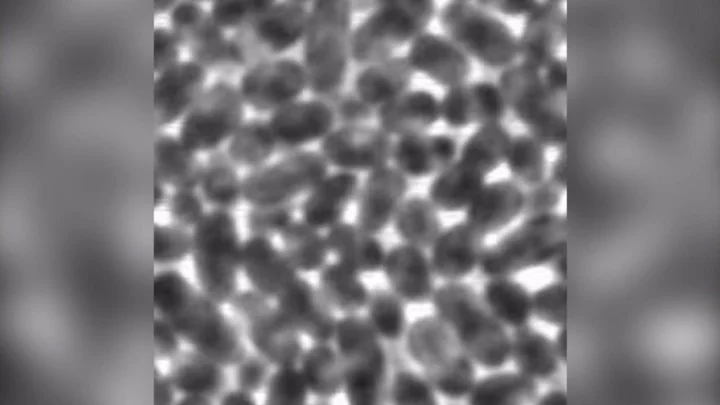
Sushi could secretly be spreading antibiotic resistance
Antibiotic-resistant bacteria are an increasing area of concern for health experts and scientists are concerned that the popular food sushi could be spreading it. Researchers at the Norwegian University of Science and Technology were interested in looking at the health implications of sushi, which is considered pretty standard fare in the country. Dr. Hyejeong Lee, who recently completed her PhD at the Department of Biotechnology and Food Science at NTNU, investigated different varieties of Aeromonas bacteria in seafood products that aren’t processed in a way that reduces bacteria, such as sashimi (raw fish) and cold-smoked fish. Lee explained: “The goal was to gain more knowledge about Aeromonas in this type of seafood – both the bacteria’s role in the deterioration of the product and in causing disease. Furthermore, we wanted to see if raw seafood can spread antibiotic-resistant bacteria.” While Listeria monocytogenes is the most well-known bacteria that can cause illness from unprocessed seafood, the prevalence of Aeromonas in similar products is an increasing worry for scientists for another reason. This is because Aeromonas bacteria frequently exchange genetic material with other bacteria in the sea, which means they can inherit and spread resistance to antibiotics before ending up in sushi. Lee explained: “Some strains of Aeromonas can also spread antibiotic resistance from one type of bacteria to another. Eating seafood infected by resistant bacteria is a likely way these bacteria can spread from marine animals and environments to humans.” Resistant bacteria are foreseen to be a big problem in the future, with the worst-case scenario being that few or no antibiotics will work at treating them. Experts believe it is important that antibiotic resistance is seen as a broad approach that is seriously considered in all aspects of society. Anita Nordeng Jakobsen, associate professor at NTNU’s Department of Biotechnology and Food Science, explained: “To combat the spread of antibiotic-resistant bacteria, it is important that we adopt a broad approach that looks at animal and human health, food production and the environment together in order to achieve better public health.” Still, Lee was quick to emphasise that the risk of getting sick from Aeromonas is very small, especially for healthy people. But, she stressed: “Aeromonas is often ignored when we talk about food safety. I think my research highlights that the food industry needs to pay more attention to these bacteria." Sign up to our free Indy100 weekly newsletter Have your say in our news democracy. Click the upvote icon at the top of the page to help raise this article through the indy100 rankings.
2023-09-28 15:55
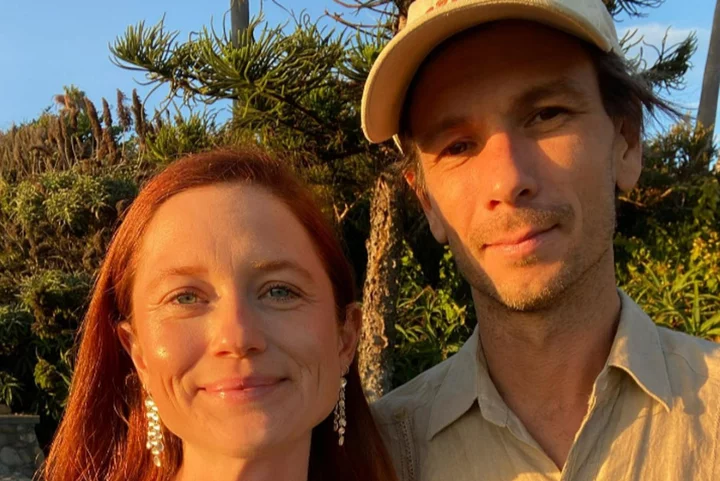
Harry Potter star Bonnie Wright announces birth and name of first child with Andrew Lococo
Bonnie Wright has announced the birth of her first child, sharing the baby’s name and first photo with her social media followers. The 32-year-old actor is best known for playing Ginny Weasley in the Harry Potter film series, which concluded in 2012. In April, she and her husband Andrew Lococo told fans that they were expecting their first child together. On Wednesday (27 September), Wright shared that she’d given birth at home last week, along with a photo of the newborn asleep under a blanket. “Say hello to Elio Ocean Wright Lococo, born at home on Tuesday 19th September,” Wright’s caption began. “We’re all healthy and happy. Andrew and I are so in love with our sun,” she wrote, adding a sun emoji. She continued her caption by praising the doula, midwives, doctor and other maternity professionals for their “amazing” work. “So grateful for our birth team that have held our hands throughout and made the journey so joyous and expanding,” Wright continued. “Birth is the wildest experience!” The actor and writer concluded her caption with a short tribute to Lococo. “Lastly thanks to Andrew my rock throughout birth quite literally as I squeezed onto you so tight and you never wavered. Elio has the most tender loving papa.” In response to the post, many fans and friends of the film star shared warm wishes in the comment section. Evanna Lynch, who played quirky Hogwarts student Luna Lovegood in four Harry Potter films, is one notable figure to have left a congratulatory message – and pointed out an unexpected link to the wizarding franchise. “Awwww congratulations Bonnie and Andrew!!! Welcome to Earth, Elio Ocean!!! ps. Hermione’s birthday twin, I’m sure you’ve been told!!” the Irish actor wrote. Others were quick to make references to the film series, with several naming the birth as the arrival of “another Weasley”. In August, Wright posted photos and video from her and Lococo’s “baby moon” in Laguna Beach, California, as they celebrated their “last quiet holiday as just two”. The couple married on 19 March 2022, a day that Wright has since described as “the best day of my life”. In an interview with Brides magazine earlier this year, she spoke about how her passion for sustainability was reflected in their choices for the ceremony, as well as in her vintage, century-old wedding dress. “The dress didn’t have the original underdress with it as it had likely perished – it being 100 years old!” she explained. “So when I was first trying it on, it was completely see-through. It was quite funny having to imagine the underdress we would end up making for it.” Read More Bonnie Wright admits feeling ‘anxious and frustrated’ by Harry Potter screen time Harry Potter star Bonnie Wright shares new details about her 100-year-old wedding dress Harry Potter star Bonnie Wright announces she’s pregnant with her first child Nick Cannon candidly admits Mariah Carey saved his life amid lupus diagnosis The best napping method to help with pulling an all-nighter Toys children play with can have an effect on their success in adulthood
2023-09-28 15:27
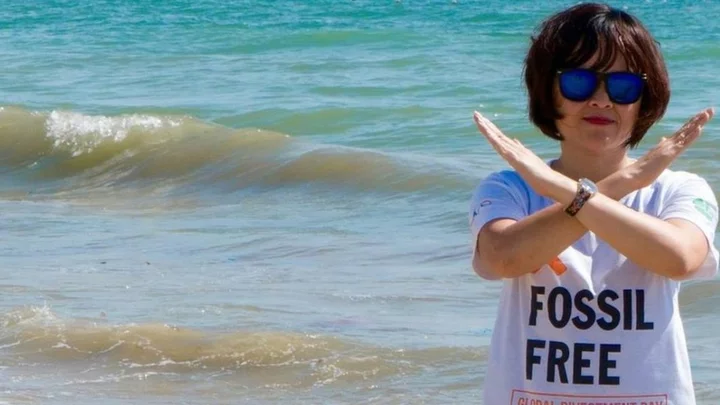
Jailing of Vietnam climate activist sparks concern
Human rights groups say there is a worrying trend of activists being arrested on tax evasion charges.
2023-09-28 13:19
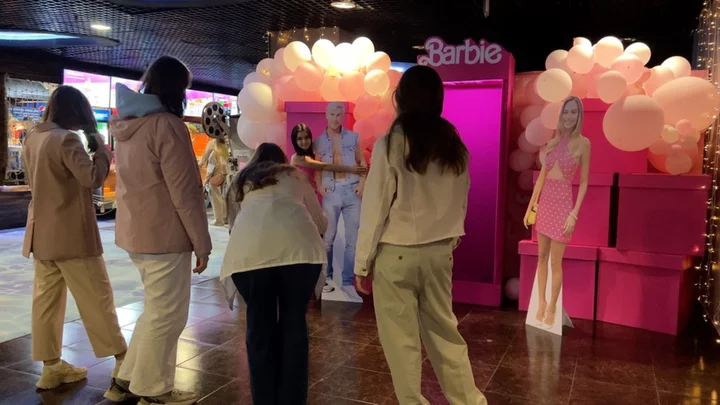
Russians queue up to see Barbie film despite sanctions
The Kremlin says Barbie is "not in line" with Russian values. Cinemagoers don't seem to mind.
2023-09-28 12:18
